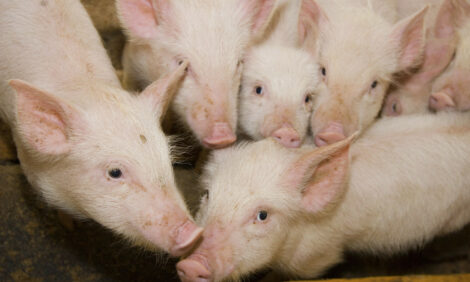



Why UK is at High Risk from African Swine Fever
UK - Britain is at high risk of African swine fever incursion because of its vast volume of trade with other countries and because it has so many residents from countries that already have African swine fever, the National Pig Association reports.This is one of the key findings by researchers in a European Union-funded study to assess the risk of African swine fever entry into individual European Union countries.
Germany and Britain operate more flights from African swine fever-affected countries, and they also have high volumes of inbound and outbound tourism.
Although Britain does not have a wild boar population, it does have clusters of feral pigs, which are of significant concern to commercial pig producers as they are potential disease reservoirs — although the risk posed by these clusters was not assessed in this study.
Events have moved on since the recent publication of the study, insofar as there are now cases of African swine fever entering the domestic pig populations of three European Union countries.
But the study remains highly relevant because it provides individual countries with the tools to assess their on-going risk levels using algorithms based on World Organisation for Animal Health risk methodologies to assess five areas of risk:
- Legal pigs
- Legal products
- Illegal imports of products
- Objects and materials associated with transport
- Wild boar
The work indicates that 48 per cent of European Union countries are at relatively high risk (a risk score four or five out of five) for African swine fever entry for at least one of the analysed pathways listed above.
Germany and the United Kingdom are given high risk scores for illegal imports, legal imports and transport.
In comparison to other European Union countries, Britain and Germany maintain very close relations with non-European Union countries, which could potentially incur a risk for disease introduction, says the study, which has been produced by specialists in Spain and at the Royal Veterinary College in Britain.
The authors say that as there is no vaccine available for African swine fever, disease prevention and rapid control are essential:
- Safe disposal of waste from international ports and airports
- Effective surveillance
- Disease awareness in high-risk areas
- Regularly updated control and contingency plans.








